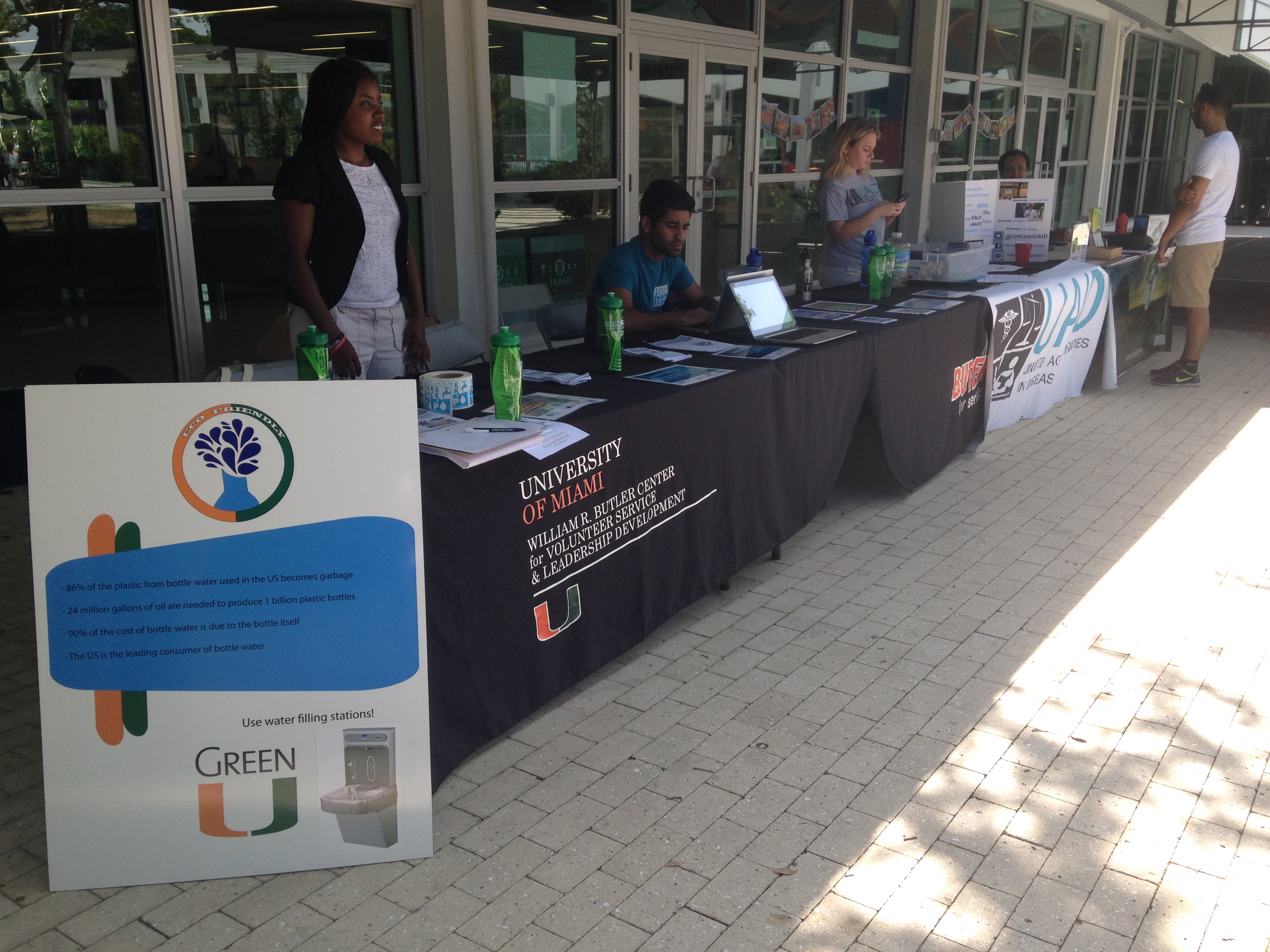
Green organizations came together Wednesday at the University Center Patio for World Water Day to educate University of Miami students about water sustainability issues.
Participants included on-campus organizations such as GreenU, The Butler Center for Service and Leadership, and UM’s chapter of UAid. Off-campus service organizations were also there, including Take Back the Tap, which collaborated with UM for this event.
“Our missions line up together, so we’re working together,” said Randall Seenandan, leadership coordinator at The Butler Center. “It’s all about the environment.”
The Butler Center brought the national Take Back the Tap campaign to campus, asking students to sign a pledge not to use disposable plastic water bottles but to help prevent plastic contamination in the ocean from plastic bottles that are not recycled.
Ashley Wrushen, a sophomore studying public health, volunteered to help promote the eco-friendly bottle campaign. She informed students about the differences between bottled water and tap water.
“We’re trying to dismantle the myth that bottled water is more pure than the tap, and we’re educating students about water use around the world,” Wrushen said.
According to Teddy L’houtellier, coordinator and sustainability manager for Green U, many people purchase bottled water in the belief that it is purer and more mineral-enriched. However, he said that water in Miami-Dade county is naturally mineral-enriched from bedrock, a consolidated rock underlying Earth’s surface, and does not necessarily require a filtration system.
“It’s always good to have a filtering system, depending on the area, because sometimes [there can be a] bad taste from piping systems,” he said. “But there is no reduction in water quality.”
On campus, water fountains have built-in filtration systems. In the future, there may be efforts to ban the sale of plastic bottles within the Student Center, compensated with the sale of reusable bottles at Outtakes.
Meanwhile, UAid focused on educating the public about the effect of sea level rise on drinking water. The booth included a bottle of visibly dirty water that represented what unfiltered drinking water could look like if sea level rise continues.
“It’s an important issue because sea level rise will lead to salt water intrusion into our aquifers, meaning the water will not be drinkable,” L’houtellier said. “We’ll need to find new ways to get clean water. That will be expensive and a headache.”
Stephanie Schwartz, a senior health science major and member of UAid, said that dirty water will pose a larger issue to people from lower socioeconomic classes.
“It’s crazy to think it will look like this,” Schwartz said. “And it will be difficult for people from lower socioeconomic backgrounds to afford filters.”
To combat this issue, UAid helps to educate children about sea level rise.
“Once you get kids involved… they’re the next generation who can solve our problems,” Schwartz said. “Because many people in this generation have difficulty accepting these problems.”
Seenandan predicts that sea level will rise between nine inches and two feet by the year 2050 or 2060, causing damage to more than just drinking water.
“It will be a detriment to Miami’s tourist economy if there’s no South Beach,” Seenandan said. “All that will be left is the city of Miami—and who knows how long that will be above water.”
Featured image courtesy Aaron Keene via Flickr.






